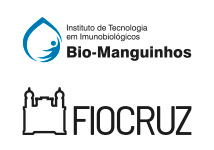Fiocruz and the Drugs for Neglected Diseases initiative (DNDi) have signed a strategic alliance agreement that broadens and strengthens their ongoing partnership.
The goal of the alliance is to implement, by 2027, actions that help ensure the development and delivery of drugs to patients from frequently neglected communities. The scope of the agreement is not restricted to Latin America.
In 2003, Fiocruz and six other health institutions across the globe founded DNDi as a group effort to address the frustration expressed by physicians and healthcare professionals in many countries. They were dealing with a lack of treatment for some diseases, or they only had treatments that were ineffective, unsafe, or not available.
Unlike previous Memoranda of Understanding between Fiocruz and DNDi, such as the partnership signed in 2022 for research and development of a treatment for dengue, this is a broader agreement that creates a Joint Strategic Committee to supervise present and future collaborations between the two institutions.
‘This is a special day for us. We are building our founding partnership into a strategic alliance with a broader vision that will allow us to work simultaneously on various initiatives,’ said Marco Krieger, Vice President for Production and Innovation in Healthcare at Fiocruz, who signed the agreement as interim President due to the absence of Mário Moreira.
‘The COVID-19 pandemic has shown us how important local contributions can be for addressing regional problems. We have done the same with Chagas disease. The history of this institution shows that Brazilian and Latin American science can help address the diseases that plague this region. This is the spirit that we want to reclaim,’ said Krieger at the signing in the Rare Works Library situated in the Mourisco Castle.
As part of the agreement, the alliance will endeavour to promote the development of drugs and biopharmaceuticals for the treatment of viral and neglected tropical diseases; improve access to medicines for neglected populations; encourage clinical trials; promote open science and data sharing; and create educational initiatives about neglected diseases.
The Committee, comprised of six members from each institution, was created to set out and achieve these objectives by supervising and discussing the alliance’s planning and strategy. Its members will meet at least twice a year to discuss long-term collaboration matters. Each project arising from the alliance will be subject to a specific agreement.
According to Sergio Sosa-Estani, DNDi Latin America Director, the strategic alliance agreement was ‘built in a natural and robust way.’ It represents an evolution of the relationship between the two institutions and may benefit the Global South.
‘The fact that Chagas disease occupies such an emblematic position in our portfolio highlights Fiocruz’s influence,’ says Sosa-Estani, who also pointed out the work done on leishmaniasis, hepatitis C, and, more recently, dengue fever. ‘The strategic alliance is an opportunity to develop projects in the Global South. Today, South-South cooperation is a necessity, and without a doubt, Fiocruz has great importance in this. We at DNDi feel that it is our responsibility to contribute to this dynamic.'
Besides Krieger, Fiocruz will appoint to the Joint Strategic Committee the following individuals: Jorge Bermudez, researcher at the Nacional School of Public Health Sérgio Arouca (ENSP); André Bastos Daher, Head of the Clinical Research Platform of the Vice-Presidency for Research and Biological Collections (VPPCB); Jorge Carlos Santos da Costa, technical advisor at the VPPIS; and Vanessa Arruda Jorge, Head of Information and Communication of the Vice-Presidency for Education, Information and Communication (VPEIC). Bermudez and Daher already had seats on DNDi’s Board and Scientific Advisory Committee, respectively.
Besides Sosa-Estani, DNDi will be represented on the Committee by Maria Jesús Pinazo, Head of Chagas Disease; Isabela Ribeiro, Viral Diseases Cluster Director; Stéphane Hugonnet, NTD-HAT-Filarial-Chagas Cluster Director; and Rudi Paye, Strategy and Operations Director.
Valber da Silva Frutuoso, Advisor at the Foundation’s President’s Office, and Jadel Müller Kratz, Head of Discovery and R&D Partnership at DNDi, will manage the alliance.
Present at the signing ceremony were, from Fiocruz, Marco Krieger, in his capacity as interim President; Jorge Bermudez; Jorge Mendonça, Director of the Drug Technology Institute; Pedro Burger, Associate Head of the Institute of International Relations in Healthcare (Cris); Valber Frutuoso; André Daher; Sandra Soares, Technical Advisor at the VPPIS; Daniel Godoy, Chief of Staff of the Immunobiology Technology Institute (Bio-Manguinhos); and Tiago Nery, Advisor for International Affairs at the National Infectology Institute (INI).
Present from DNDi were Sergio Sosa-Estani; Jadel Kratz; Simone Rocha, Head of External Affairs, Latin America; and Fabiana Barreira, Chagas Clinical Project and Medical Leader.
About both institutions
Created in 2003, DNDi is an international, non-profit drug research and development organization. It works to provide new treatments for neglected patients around the world. DNDi works in partnership with the international research community, the public sector, and the pharmaceutical industry, among other partners.
A 122-year-old institution, Fiocruz’s mission is to produce, disseminate, and share knowledge and technology aiming to strengthen and consolidate the Brazilian Unified Health System (SUS). It seeks to help promote healthcare and quality of life for the Brazilian population, help reduce social inequality, and promote innovation. Its core values are the defence of the right to healthcare and comprehensive social rights.
Journalist: Marcela Dobarro – DNDi Latin America
Image: Peter Ilicciev


